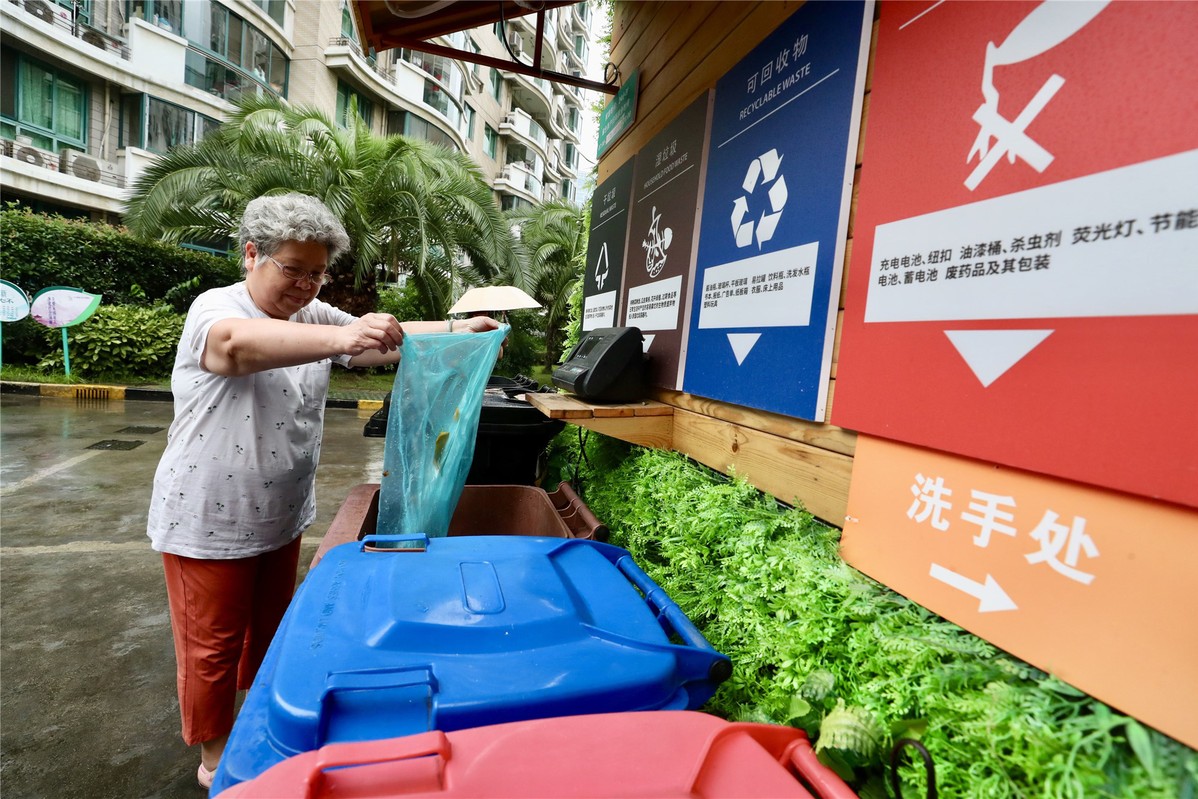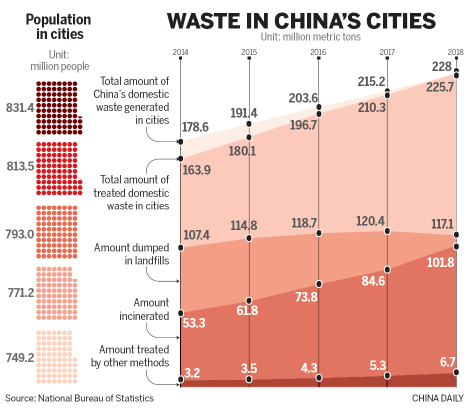Trash-sorting program heralds a zero waste future

Editor's note: This is the first in a series looking back at some of the most important, timely or unusual stories covered by China Daily's reporters last year.

Wang Jiaxue can still remember the garbage classification rules she learned during her first overseas studies in Germany eight years ago.
"In Germany, do as the Germans do," she quipped. "We had to separate glass, plastics, paper and food waste from other residual trash at our dorm and dispose of them one by one in different places. Though it felt troublesome at first, I soon enjoyed doing it because it kept our living environment clean and tidy."
The 30-year-old lives in Shanghai, where a trash-sorting campaign has rekindled her memories of life overseas. "We are experiencing the same process here; some people found it inconvenient at first, but now the majority recognize the benefits."
In January last year, Shanghai's legislators passed a municipal regulation on domestic waste management that requires people to sort their trash into four categories or face fines of up to 200 yuan ($29).
The law went into effect in July, and its strict enforcement and huge media exposure have resonated in cities nationwide, leading experts and industry insiders to say it is a milestone in China's recycling revolution and the long march toward a zero waste society.
"Trash sorting is the hottest topic in the recycling and waste management industry right now," said Fu Tao, president of the E20 Environment Platform, during the think tank's annual forum on solid waste in Beijing on Dec 19.
"In the past, there were more words than concrete acts of trash sorting-because it's tough work," he said. "But it has been pushed along the road this year, and will change the whole industry chain of waste management."
China tested trash sorting as early as 2000, when the central government chose eight cities, including Beijing, Shanghai, and Guangzhou, Guangdong province, as pilots to implement garbage-classification programs, but they bore little fruit until this year.

A report by the Shanghai Municipal People's Congress in November showed that 90 percent of the city's 12,000 residential neighborhoods met municipal trash-sorting standards. In 2018, the figure was just 15 percent.
The report said that in October, the collection of recyclables had risen by 4.6 times from the same month in 2018, while the collection of hazardous waste had risen ninefold and the amount of kitchen waste collected had doubled.
"The results are beyond expectations," said Tang Zhiping, vice-mayor of Shanghai. "The implementation of the new law has greatly increased people's knowledge of, and participation in, trash sorting."
- Chinese mountain city Chongqing becomes world's new must-see
- Hong Kong inaugurates MTR Northern Link project to fast-track Northern Metropolis construction
- China issues orange alert as Typhoon Matmo approaches
- Xi, Bangladeshi president exchange congratulations on 50th anniversary of ties
- Vibrant China during holiday: Traditional culture meets tech
- China activates emergency response as Typhoon Matmo approaches





































